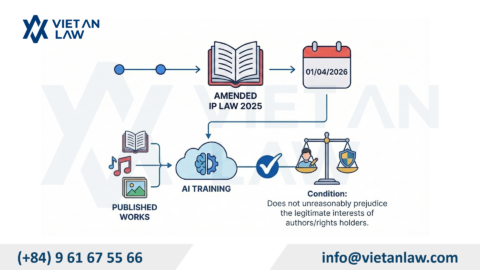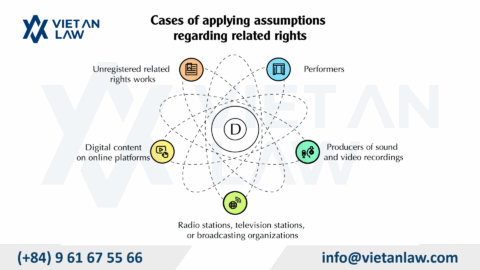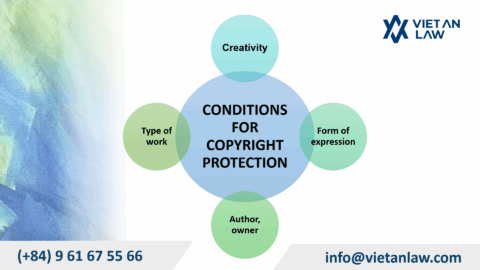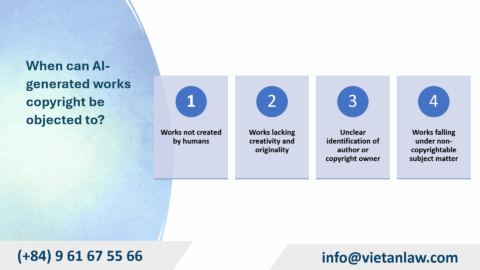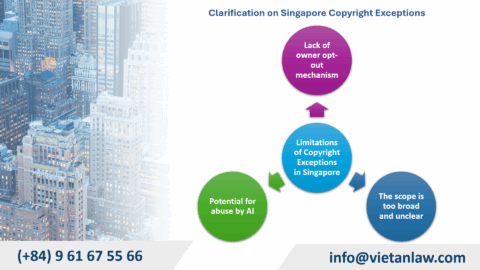Under the Intellectual Property Law, copyright is the right of organizations and individuals toward works created or owned by them. Copyright is recognized for literary, artistic, and scientific works such as books, lectures, musical works, stage works, cinematographic works,…. Copyright automatically arises from the moment a work is fixed in a specified material form, whether the work is published or unpublished, registered or unregistered.
Related rights are the rights of organizations and individuals to performances, phonograms, video recordings, broadcast programs, and satellite signals carrying encrypted programs.
Although copyright registration is not required, in case an individual or an organization that is an author has registered copyright / related rights with the Copyright Office – literature and arts will bring a variety of advantages when a dispute occurs.
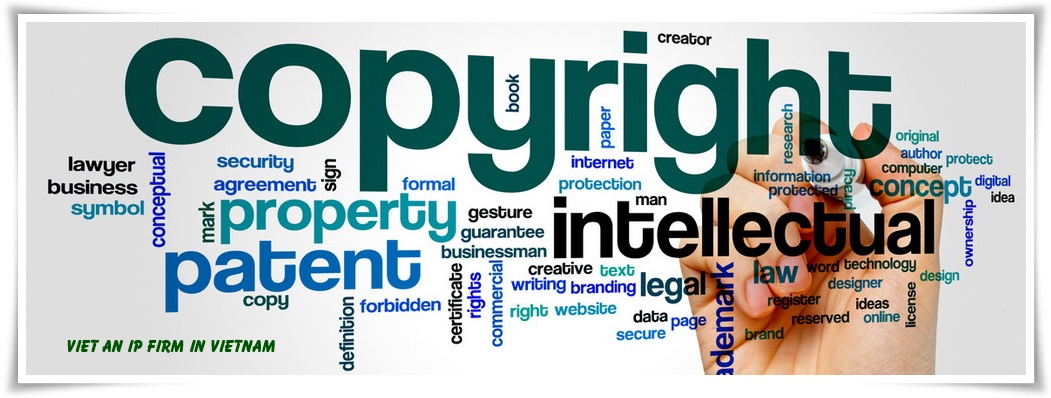
Law on Intellectual Property 2005, amended and supplemented in 2009, 2019.
Under Article 13 of Law on Intellectual Property Law 2005, authors and copyright holders with works that are protected by copyright include:
Under Article 14 of Law on Intellectual Property Law 2005, amended in Clause 5, Article 1 of Law amending and supplementing several articles of the Law on Intellectual Property 2009, protected literary, artistic, and scientific works include:
This article also stipulates: Derivative works (Derivative works are works translated from one language to another, or an adapted, modified, transformed, compiled, annotated, or selected work) are only protected if such protection is not prejudicial to the copyright in the works used to create such derivative works.
Besides, the above works must be created directly by the author through his intellectual labor without copying the work of others.
According to Article 27 of Law on Intellectual Property Law 2005, amended in Clause 8, Article 1 of Law amending and supplementing several articles of the Law on Intellectual Property 2009:
Copyright registration is also known as copyright protection, the purpose is to ensure creators of works against illegal use of works such as thieve, copy, abuse those works. In the event of a dispute, the Copyright Registration Certificate is the best proof of the author’s ownership of the work. Furthermore, it is also proof of ownership used when valuing the company’s assets in the case of equitization, merger, or acquisition. The registration of copyrights is one of the administrative procedures with competent state agencies for the owners to apply for the License to publish books, stories, …
In our country today, the issue of copyright protection, in general, is still very weak. The assessment to grant a copyright registration certificate is conducted based on the commitment of the owner of that logo, there is no synchronous system to manage and check the possibility of whether the registered logo is a copied version of another logo or not, especially in case the logo’s author has not published his work. The registration for copyright protection is not a mandatory procedure to enjoy copyright and it is not the basis of establishing copyright; Works, whether registered or not registered, enjoy the same protection. The established copyright is not absolute, so the enforcement and protection of the rights are not thorough. The problem of copying a logo is complicated, difficult to prove how is copyright infringement…
This is a protection procedure that ensures the strongest ownership legally for the owner of the logo (work of applied art). Trademark registration protection includes: protecting both text and image content (if the logo includes words), against the act of using a similar logo that confuses, even if it is not 100% identical. Trademarks have strict regulations on coincidences, confusing to assess the level of infringement when being copied and used without permission.
